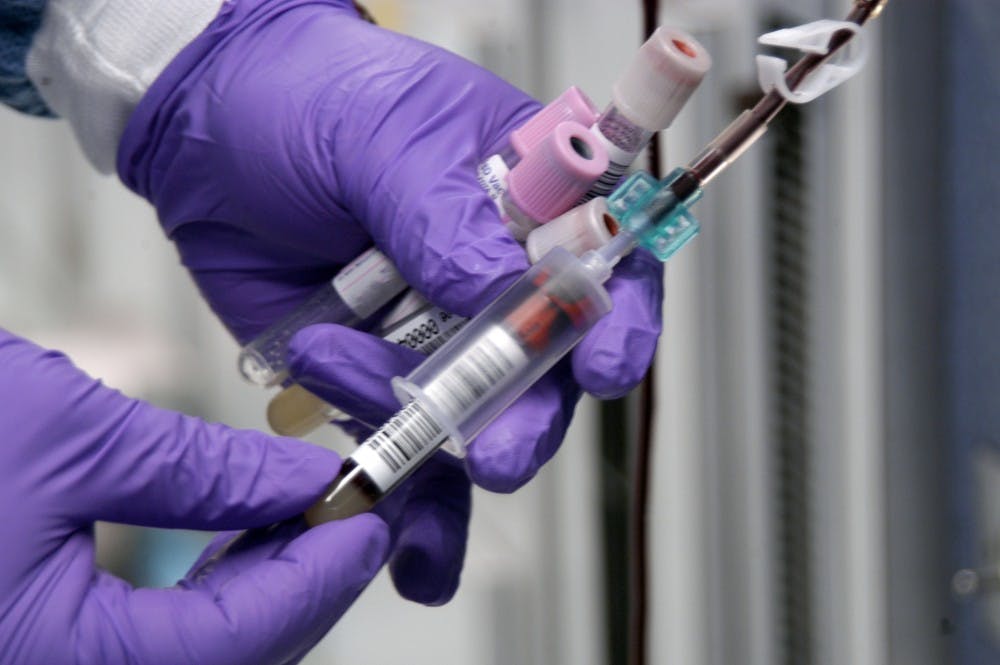On Feb. 14, the United States Food and Drug Administration (FDA) approved a new blood test that can quickly and easily diagnose concussions and other related brain injuries.
A concussion diagnosis requires a neurological exam followed by an often expensive CT scan that subjects the patient to radiation. Sometimes people with mild concussions associate only very drastic symptoms, such as fainting, with concussions and fail to get themselves tested. In reality, only 10 percent of concussions result in a loss of consciousness, while concussions of all severities are serious.
Other times the difficulty lies in the nature of concussions and their variability between individuals. People experience different symptoms and different times of symptom onset. Some experience symptoms immediately following the concussion, whereas others do not have symptoms until days or even weeks later.
Some patients are sensitive to light and noise, while others have fuzzy memory or neck pain, depending on the area of the brain that was injured. The neurological exam, therefore, may not always be sufficient in diagnosing a concussion patient, and a CT scan is not always immediately available to patients in developing countries or victims of natural disasters.
However, the new blood test that the FDA approved this past week is a promising solution to improving the ease and effectiveness of concussion diagnosis.
The human brain is a delicate organ, suspended in cerebrospinal fluid and protected by the skull. Yet these defense mechanisms cannot always protect the brain from injury. Each year there are nearly 4 million cases of concussions reported nationwide.
Concussions happen when the brain is jostled within the skull by an external impact. Although they are usually not life-threatening, they can lead to very serious consequences.
Many concussions happen during sports-related activities, and 47 percent of all reported sports concussions happen in high school football, according to the Head Case Company.
While the NFL and other professional sports teams have worrisome concussion statistics, they often have a physician present in the case of injury. Most high school and recreational teams do not. Thus, athletes who have suffered a mild concussion, especially high school players, are often sent back onto the field, putting them at risk for consecutive concussions.
The new blood test, called the Banyan Brain Trauma Indicator, works by measuring the levels of UCH-L1 and GFAP, two types of proteins that are released into the blood by the brain, within 12 hours of the injury.
By testing the levels of these blood proteins, healthcare professionals can predict whether or not patients have intracranial lesions visible by the CT scan.
According to the FDA, the brain trauma indicator accurately predicts the presence of intracranial lesions on a CT scan 97.5 percent of the time and the absence of them 99.6 percent of the time.
Most first-time concussions heal within weeks if given proper time and rest. However second- and third-time impacts can cause permanent brain damage.
Second-impact syndrome, for example, occurs when a patient experiences a second concussion before his or her recovery from the first one. The brain swells dangerously as a result. Consecutive and cumulative sports concussions evidently increase the likelihood of long-term neurological disability, such as chronic traumatic encephalopathy, by 39 percent.
More than half of concussions go undiagnosed and unreported. One problem seems to be the difficulty of diagnosis.
Not only can widespread use of this blood test decrease the need for CT scans (and thus radiation exposure) in patients with suspected brain injury by one third, but it can also replace CT scans as a faster and more accessible way to diagnose concussions without sacrificing accuracy.
The biomedical company that makes the blood test device, Banyan Biomarkers, now wants the FDA to approve both a smaller version of the brain trauma indicator and a hand-held version. They believe this will make the brain trauma indicator more accessible and will help protect people of all ages around the world.
Most first-time concussions heal within weeks if given proper time and rest. However, second- and third-time impacts can cause serious, permanent brain damage.
Second-impact syndrome, for example, causes the brain to swell dangerously after a second concussion happens before the brain can recover from the first. Consecutive and cumulative sports concussions are found to increase the likelihood of long-term neurological disability, such as chronic traumatic encephalopathy, by 39 percent.
More than half of concussions go undiagnosed and unreported. One problem seems to be the difficulty of diagnosis.
Not only can widespread use of this blood test decrease the need of CT scans (and thus its radiation exposure) in patients with suspected brain injury by one third, it can replace CT scans as a faster, easier, and more accessible way to diagnose concussions without sacrificing accuracy.
Banyan Biomarkers, the biomedical company that makes the blood test device, is now working on getting a smaller version of the brain trauma indicator, as well as a hand-held one, approved by the FDA. next. They believe this will make the brain trauma indicator more accessible and help protect people of all ages around the world.





